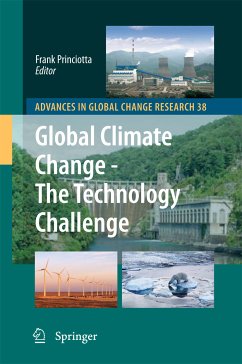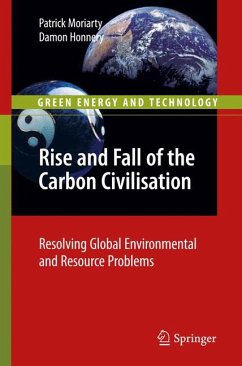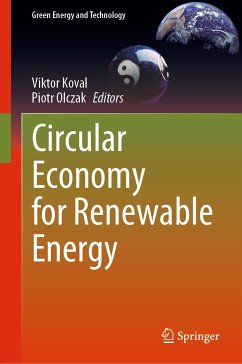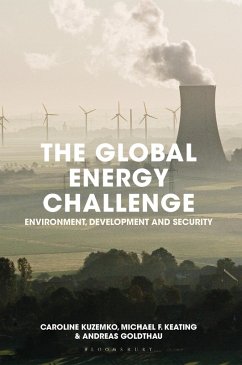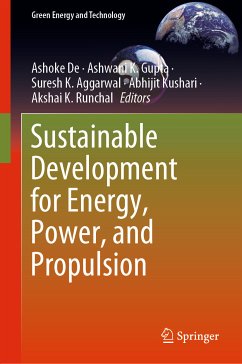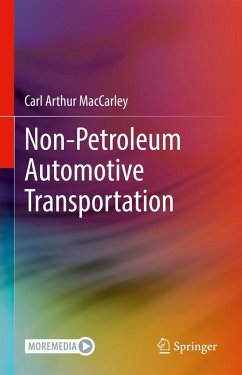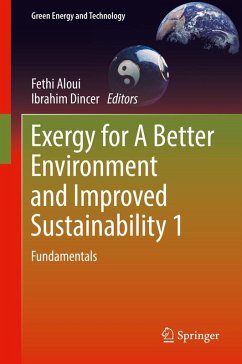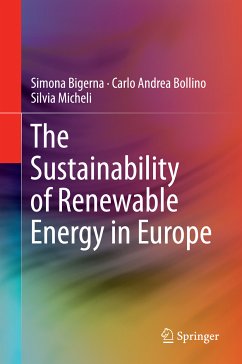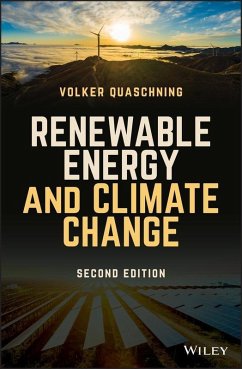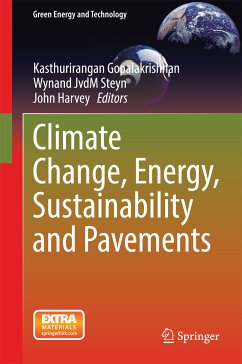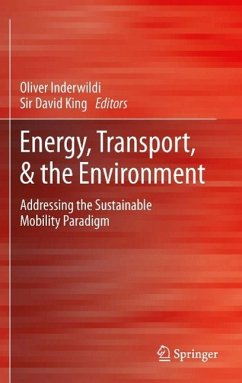
Energy, Transport, & the Environment (eBook, PDF)
Addressing the Sustainable Mobility Paradigm
Redaktion: Inderwildi, Oliver; King, David
Versandkostenfrei!
Sofort per Download lieferbar
160,95 €
inkl. MwSt.
Weitere Ausgaben:

PAYBACK Punkte
80 °P sammeln!
Sustainable mobility is a highly complex problem as it is affected by the interactions between socio-economic, environmental, technological and political issues. Energy, Transport, & the Environment: Addressing the Sustainable Mobility Paradigm brings together leading figures from business, academia and governments to address the challenges and opportunities involved in working towards sustainable mobility. Key thinkers and decision makers approach topics and debates including: energy security and resource scarcity greenhouse gas and pollutant emissions urban planning, transport systems and th...
Sustainable mobility is a highly complex problem as it is affected by the interactions between socio-economic, environmental, technological and political issues. Energy, Transport, & the Environment: Addressing the Sustainable Mobility Paradigm brings together leading figures from business, academia and governments to address the challenges and opportunities involved in working towards sustainable mobility. Key thinkers and decision makers approach topics and debates including:
energy security and resource scarcity
greenhouse gas and pollutant emissions
urban planning, transport systems and their management
governance and finance of transformation
·the threats of terrorism and climate change to our transport systems.
Introduced by a preface from U.S. Secretary of Energy, Steven Chu and an outline by the editors, Dr Oliver Inderwildi and Sir David King, Energy, Transport, & the Environment is divided into six sections. These sections address and explore the challenges and opportunities for energy supply, road transport, urban mobility, aviation, sea and rail, as well as finance and economics in transport. Possible solutions, ranging from alternative fuels to advanced urban planning and policy levers, will be examined in order to deepen the understanding of currently proposed solutions within the political realities of the dominating economic areas.
The result of this detailed investigation is an integrated view of sustainable transport for both people and freight, making Energy, Transport, & the Environment key reading for researchers, decision makers and policy experts across the public and private sectors.
energy security and resource scarcity
greenhouse gas and pollutant emissions
urban planning, transport systems and their management
governance and finance of transformation
·the threats of terrorism and climate change to our transport systems.
Introduced by a preface from U.S. Secretary of Energy, Steven Chu and an outline by the editors, Dr Oliver Inderwildi and Sir David King, Energy, Transport, & the Environment is divided into six sections. These sections address and explore the challenges and opportunities for energy supply, road transport, urban mobility, aviation, sea and rail, as well as finance and economics in transport. Possible solutions, ranging from alternative fuels to advanced urban planning and policy levers, will be examined in order to deepen the understanding of currently proposed solutions within the political realities of the dominating economic areas.
The result of this detailed investigation is an integrated view of sustainable transport for both people and freight, making Energy, Transport, & the Environment key reading for researchers, decision makers and policy experts across the public and private sectors.
Dieser Download kann aus rechtlichen Gründen nur mit Rechnungsadresse in A, B, BG, CY, CZ, D, DK, EW, E, FIN, F, GR, HR, H, IRL, I, LT, L, LR, M, NL, PL, P, R, S, SLO, SK ausgeliefert werden.




